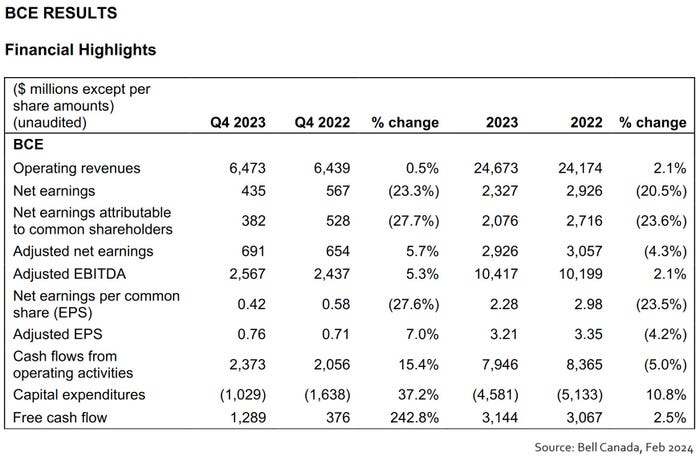Bell blames regulator as it prepares to cull thousands of jobs
Canadian incumbent Bell Canada (BCE) is still not done with punishing the regulator over its decision on wholesale fibre access.
February 9, 2024

It has revealed plans to axe around 9% of its workforce – which equates to 4,800 positions including 750 contractors – in response to "unsupportive" regulations, declining sales of legacy products, and higher interest rates.
In November, in an effort to stimulate competition in the fibre broadband market, the Canadian Radio-television and Telecommunications Commission (CRTC) ordered large telcos to open up their fibre networks in Ontario and Quebec, and set limits on the prices they could charge for access.
Bell didn't take it well.
It announced plans to reduce its capex in 2024-25 by more than C$1 billion ($742 million), at least half of which will be accounted for this year.
It also lowered its fibre coverage target by 700,000 premises to 8.3 million by the end of 2025. It has also capped the maximum available speed on its fibre network at 3 Gbps.
Now, on top of that, Bell plans to undertake the biggest round of layoffs in nearly 30 years in a bid to save between C$100 million and C$200 million this year.
"While it's clear that we are continuing to execute with discipline in a competitive marketplace, we need to take additional measures in response to increasingly unsupportive federal government and regulatory decisions, legacy business declines and a macroeconomic environment with higher interest rates and continued inflation. As our business is hampered by regulatory decisions that discourage investment, we are slowing the pace of our network expansion and capping fibre speeds," said Bell's CEO Mirko Bibic.
"In addition, we are undertaking a significant workforce restructuring initiative – our largest in nearly 30 years – reducing approximately 4,800 positions, or 9% of all BCE employees," he continued. "I recognise that this decision is difficult for the team members impacted, and I thank each of them for their contributions."
The job cuts accompanied the publication of Bell's latest financial results.
Fourth quarter revenue inched up 0.5 percent year-on-year to C$6.5 billion ($4.8 billion). This was thanks to a greater sales mix of higher-value mobile phones and lower year-on-year device discounting during Black Friday and holiday sales periods. Service revenue fell 0.1 percent to C$5.3 billion, as growth at the telco business was offset by a decline at its Bell Media division.
Adjusted EBITDA climbed 5.3% to C$2.6 billion, but quarterly net income slumped 23.3% to C$435 million due to higher 'other' expenses. These include a C$204 million non-cash loss on an obligation to repurchase a minority interest in one of its joint ventures.

"BCE is in a good position, having achieved our financial targets for 2023 while having weathered increasing macroeconomic headwinds and an unsupportive public policy environment this past year," said BCE's finance chief Curtis Millen. "Looking ahead, we are increasing BCE's common share dividend by 3.1% for 2024. This will be a transformational year for Bell as we balance growth with financial performance, continue to adapt in the face of external pressures, and focus on revenue-generation on our transformation journey to a tech services and digital media leader."
Judging by Bell's outlook, this transformation won't yield anything particularly exciting on the financial front this year.
It expects full-year revenue growth in the range of 0% and 4%. In 2023, revenue came in at C$24.7 billion. Adjusted EBITDA is expected to grow by between 1.5% and 4.5% on the C$10.4 billion earned last year. Adjusted earnings per share are expected to fall from C$3.21 to between C$2.98 and C$3.13.
About the Author(s)
You May Also Like








.png?width=300&auto=webp&quality=80&disable=upscale)


_1.jpg?width=300&auto=webp&quality=80&disable=upscale)


.png?width=800&auto=webp&quality=80&disable=upscale)